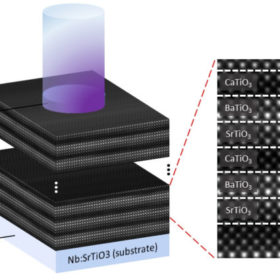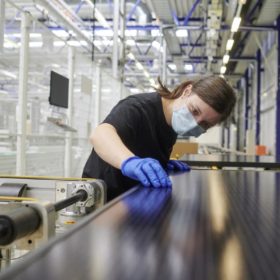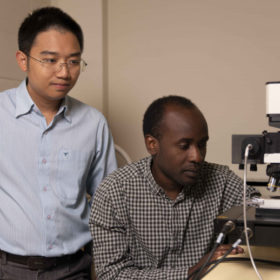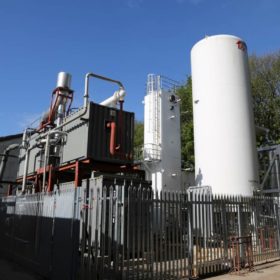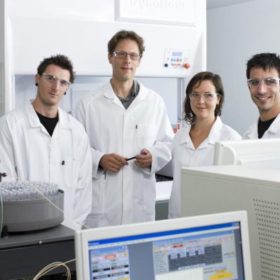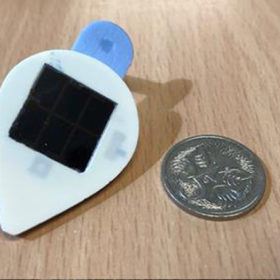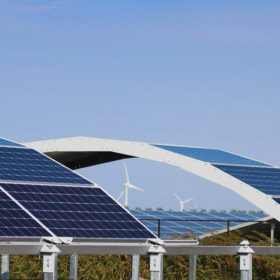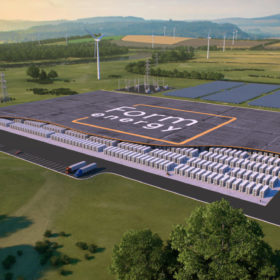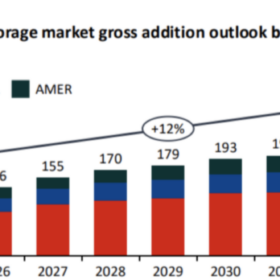Crystal arrangement results in 1,000x more power from ferroelectric solar cells
German researchers developed a lattice arrangement of three different layers of ferroelectric crystals that created a powerful photovoltaic effect.
Meyer Burger plans to launch solar PV roof tiles in 2022
The Swiss group has acquired an integrated solar roof system solution from an unidentified German engineering service provider for this purpose. The aim is grow this sector from a niche market.
ANU researchers go round the twist with latest ultra-thin solar discovery
Researchers at The Australian National University working on the photovoltaic potential of ultra-thin 2D materials have made an interesting discovery, the ability of these diaphanous materials to generate solar energy can be controlled by a mere “twist”.
A closer look at liquid air energy storage
A British-Australian research team has assessed the potential of liquid air energy storage (LAES) for large scale application. The scientists estimate that these systems may currently be built at a cost between €300 and €600 (AU$480 to $960) per megawatt-hour and that a positive business case could be favoured by certain conditions, including a determined price structure in the energy market and the presence of a grid unable to support high levels of renewable energy penetration.
AEMO’s 2021 IASR sets new scenarios and ambitions for Australia’s solar industry
Solar PV is an important contributor to all energy scenarios presented in AEMO’s latest “Input, Assumptions and Scenarios Report,” but what’s the best possible outcome it can enable?
Sodium-ion batteries a commercial reality, claims CATL
The manufacturer has launched sodium-ion products online. Production has begun and will be easily scalable, according to the CATL chairman. Researchers have been keen to make the technology work as it offers a cheaper, more environmentally friendly alternative to lithium-ion products.
Aussie startup invents breakthrough non-toxic battery electrolyte that’s cheaper ‘by factor of 100’
It’s a breakthrough so staggeringly simple the patent office needed convincing it counted as an invention. In what Professor Thomas Nann jokingly told pv magazine Australia basically equates to adding dishwashing liquid and oil to water, he and two of his former PhD students have unlocked the potential of water-based electrolytes for batteries, promising a solution that is cheaper, easier to manufacture and non-toxic. The startup plans to initially use the formula in supercapacitors before exploring it in conjunction with redox flow batteries.
Coin-sized solar panels to protect koalas from bushfires
Solar panels the size of five cent pieces will be used to locate koalas and protect them from incoming bushfires as well as to care for the threatened species as their habitat regenerates.
Arc-shaped PV system for agrivoltaics from Germany
The PV mounting system was developed by Germany-based Goldbeck and will initially be available in the Netherlands from 2022. The company will test the new technology in a 45 MW PV project.
Multi-day iron-air batteries reach commercialization… at one tenth of the cost of lithium
Boston startup Form Energy has secured US$200 million (AU$270 million) Series D funding for the development of what is being called a breakthrough in energy storage.
